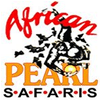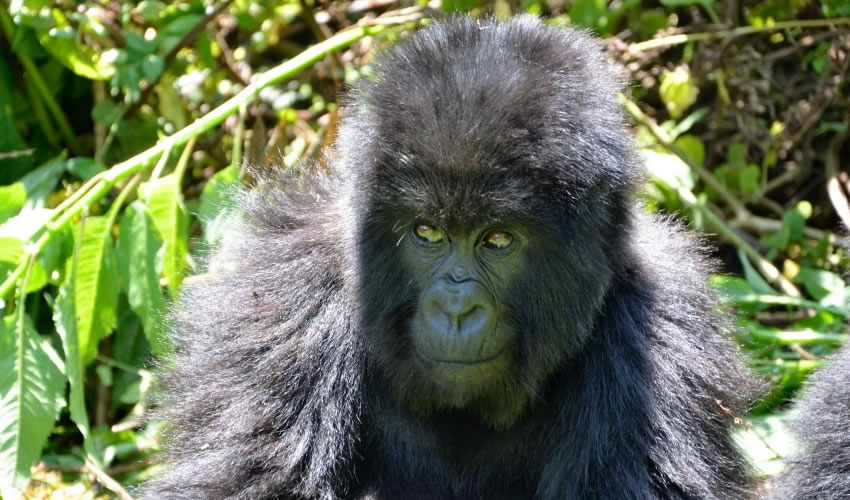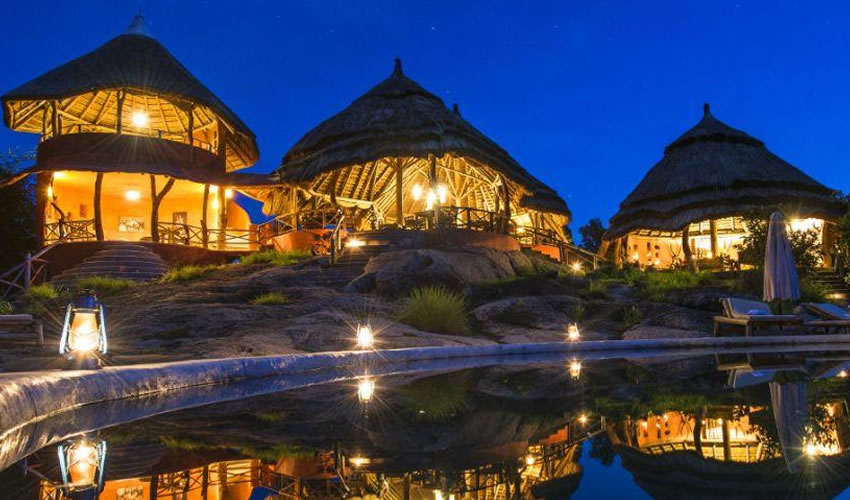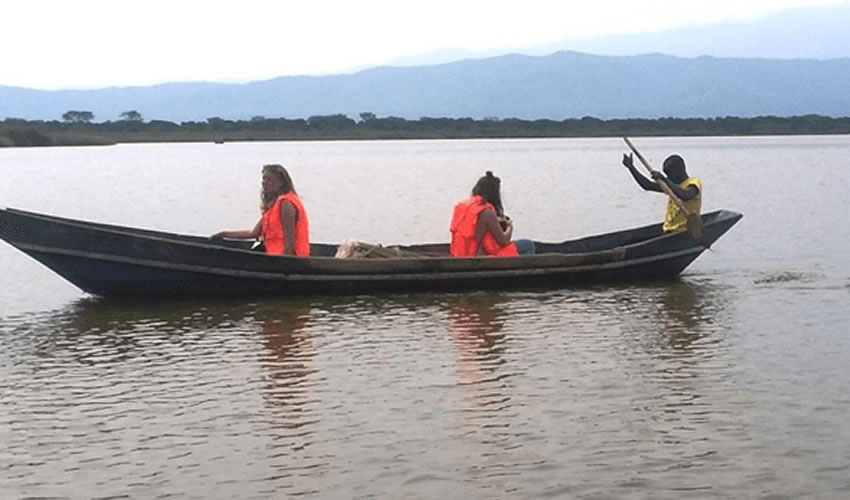11 Practical Tips for Planning a Gorilla Trekking Safari
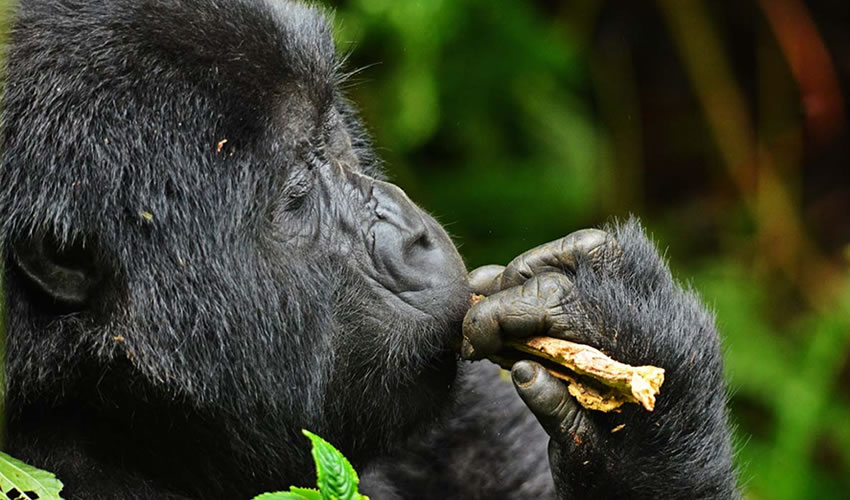
Planning a gorilla safari to Bwindi Impenetrable National Park, Mgahinga National Park, Volcanoes National Park or Virunga National Park can be quite daunting, which is why one needs to follow certain guidelines. Below are the 11 practical tips for planning a gorilla trekking safari.
-
Plan your gorilla trek in advance.
Gorilla trekking in Uganda is one of the best tourist activities in Africa and you need to plan it in advance. You need to start planning at least six months in advance; this is because there are many things you need to think if you want to have a successful gorilla safari in Africa.
-
Get to decide on which country to trek.
Rwanda or Uganda; you need to make a decision on which country to visit. Mountain gorillas can be viewed in Rwanda, Uganda and DRC. Fatefully, there is some insecurity in the DRC and as such we don’t recommend the tourists to trek gorillas in Congo until further notes. Mountain gorillas in Uganda are found in Bwindi Impenetrable National Park and Mgahinga National Park. While in Rwanda, they are found in Volcanoes national Park. One gorilla family is found in Mgahinga forest which is also part of the Virunga ranges shared between Uganda, Rwanda and Congo, this group keeps migrating to and from Uganda to Rwanda.
Bwindi forest has got 18 gorilla families that are situated in different regions of the forest and that also means that you require to be careful when buying the permits. You can as well choose to visit both countries and compare the two experiences or trek in one country. When you make your decision about where to trek the mountain gorillas from, always contact a tour operator to book for you a permit.
-
Buying your gorilla permit.
You will routinely need a gorilla permit for a given day in a known national park in either Rwanda or Uganda for you to be able to trek the mountain gorillas. You can also contact a reliable Uganda tour operator to get you a gorilla permit. You also need to contact a tour operator who is a member of the Association of Uganda tour operators (AUTO). They will check and advise you on the availability of the permits leaving you to make a decision on your own.
Once you buy the gorilla permits, you are good to go. In Uganda, the permits are issued by Uganda Wildlife Authority through the registered tour operators on a first come first serve basis. In order to keep away from shortage of gorilla permits, organize this in advance. There is a probability of booking a Uganda gorilla permit by you however it’s always better to use a tour operator since Uganda Wildlife Authority is so slow at returning phone calls and responding emails.
The gorilla permit will determine the accommodation to be booked for you among many other factors. You have to create your interest and in case you need a simple trek, it’s better to book the permits for either Ruhija or Buhoma. In case you need a more demanding trek, you can go for Rushaga region or Nkuringo. With the altitude problem, then you should avoid the southern sector of Bwindi forest since it has got the highest altitudinal point. For more information, get to contact your tour operator before you make any decisions.
-
Which region are you trekking?
Gorilla permit allocation in Uganda is based on regions; the regions with gorilla families in Bwindi are estranged by long distances. Buhoma region located in the north of the park and its home to 3 gorilla families including; Mubare, Rushegura and Habinyanja. Ruhija region is located in east of the part with 3 families like Oruzongo, Bitukura, and Kyaguriro. Rushaga sector located in the south is home to five gorilla families including Kahungwe, Mishaya, Nshongi, Bweza and Busingye while Nkuringo region located in the south has Nkuringo gorilla family.
-
Accommodation and Transport.
When you decide on which side of Bwindi to trek. It’s better to ask for advice from the operators since they know better which sides will suite your interest. Now it’s time to book your accommodation and transport. You can let your tour operator know the level of accommodation options in all regions of the park so it’s up to you to choose budget, moderate or high end.
-
Get to know about gorilla rules and regulations.
These are endangered species and according to 2013 census, only 880 individuals are remaining in the world. Your visit to these primates should not reduce their numbers but should instead increase on it. Your tour operator should send you gorilla trekking rules and regulations and how you must conduct yourself while with the mountain gorillas.
-
What to pack for your gorilla trek.
Mountain gorillas in Bwindi live in thick forests and in an area that is dominated by steep hills and because of this breadth and terrain in the forest, you need to prepare what to wear. You will need hiking boots, long sleeved trousers and shirts, gloves, long stocks, insect repellent, camera, a hut, sun glasses, plus energy giving foods.
-
Best time to trek the mountain gorillas.
When planning a gorilla tours, you must know the best time to trek mountain gorillas in Uganda. These primates can be trekked throughout the whole year, in drier months of June, July, August and September. Throughout these months, there is little rain and chances are that the trek will be easy since the trails will be so slippery as well. The months of April, May and November are the wettest months and the clients avoid them.
-
The Walking sticks and porters.
These are best companies you can have on your gorilla trek. You will need a walking stick that will help you trek those steep hills. The walking sticks are offered by most lodges and in case the lodge doesn’t provide, the porters can offer them at a cost of $10 to $15. In case you have a less fit client, we advise that you take a porter with you who will give you a push or a pull when the going gets tough. These can carry your pack and stay with you throughout the trek. Porters can be very helpful, which is why we have included them in our 11 Practical Tips for Planning a Gorilla Trekking Safari.
-
How is gorilla trekking like?
This whole process starts with you waking up to prepare yourself. Get to dress and then go to the restaurant for early breakfast and pick up your packed lunch as well as the walking sticks. Always make sure you have all that you will need to have your gorilla trek. After breakfast and mostly depending on the facility where you spent a night from, you might drive or walk to the pack head quarters for registration and allocation of gorilla families depending on your wellbeing and the bodily fitness. Some of the lodges are closer to the park head quarters and other are far, so always take care of this before making decision.
You are divided into groups of eight people per gorilla family and each of the group is given a guide, a ranger and a tourism police officer who has to ensure that you are safe while tracking mountain gorillas. Bwindi is home to unhabituated chimps, forest buffaloes, elephants and many animals. Policemen and the rangers are in place to scare away any of these animals in case they come closer. You will walk or drive to the starting point as each gorilla family has several starting points depending on its movements within its territory.
Take note that mountain gorillas are self protective but they tend to stay in a given dimensional area. From the start, you will start your trek which takes 30 minutes to 6 hours and once you see these gorillas, you will be given one hour to spend with them as you take photos before returning back to the park head quarters. At the head quarters, each one of you will be given a certificate of recognition of your contribution to the conservation of the gorillas.
-
Combing other excursions with gorilla trekking.
Both Uganda and Rwanda have got a lot to offer apart from the gorillas, you might choose to visit the source of the Nile, visit the different national parks with lots of wildlife, do chimpanzee trekking, visit Dian Fossey tomb, enjoy adventurous activities in Uganda including; white water rafting, bungee jumping, kayaking, quad biking, cycling and many more. It’s advisable to combine a gorilla safari with any of the above activities to have the best experience in Uganda and Rwanda.
Our 11 Practical Tips for Planning a Gorilla Trekking Safari may not cover every aspect of tracking mountain gorillas. Contact us for any information you might need to make your Gorilla Tracking Tour a memorable one.
